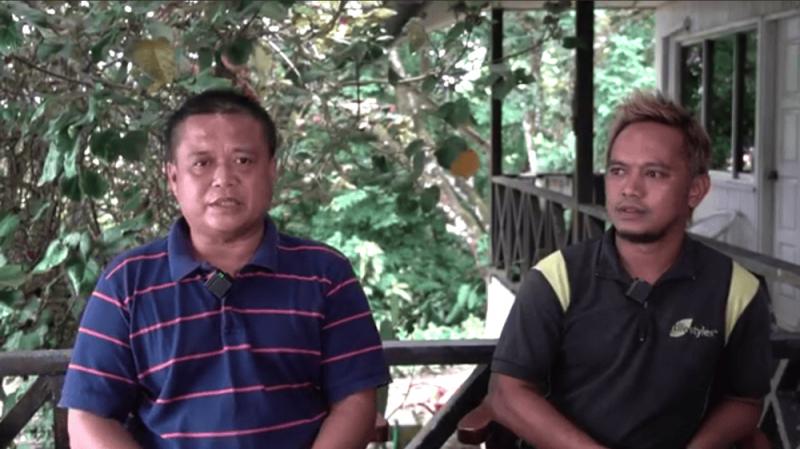Sabah is known far and wide for its forest industry, and the town of Sipitang, Malaysia’s paper manufacturing hub, is the home of Sabah Forest Industries Sdn Bhd (SFI), a pioneer in Southeast Asia’s pulp and paper production business.
Founded in 1982 with the Lion Group as its primary shareholder, SFI boasted an annual production capacity of 240,000 tonnes of pulp and 144,000 tonnes of paper.
Its timber complex had an output of 2,000 cubic metres of sawn timber and 4,000 cubic metres of plywood each month. The company also managed 50,000ha of eucalyptus and acacia plantations and operated a dedicated jetty.
SFI was sold to Ballarpur Industries Ltd in 2007 for US$261 million. Then Ballarpur, a subsidiary of Avantha Group and once India’s largest pulp and paper manufacturer, faced financial difficulties and sought to sell SFI in 2017.
As a result, the company went into receivership. During this period, with no revenue, SFI struggled with cash flow issues, resulting in delayed salary payments.
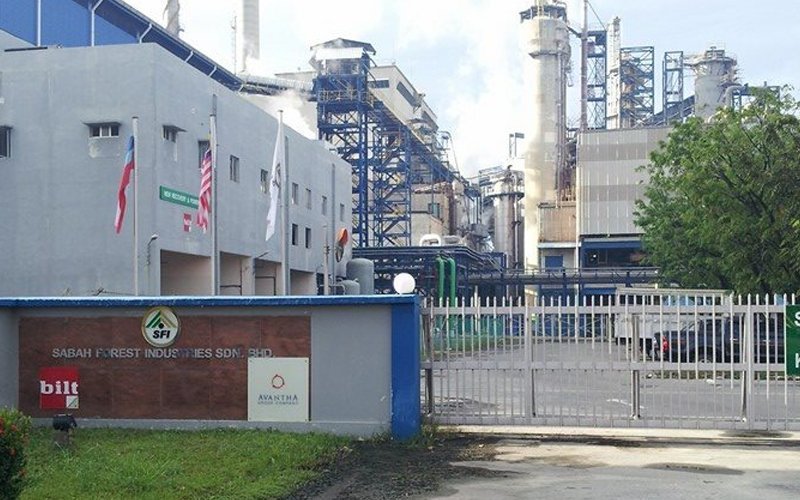
In 2019, Maybank Trustees Bhd appointed Grant Thornton Consulting Sdn Bhd as the receiver and manager (R&M), whereby the latter, as trustee, took over the operations of SFI. The agreement included an obligation to maintain SFI’s assets and pay the salaries owed to workers.
Local media reported that land, buildings, machinery and timber were liquidated to pay off SFI’s debts in the subsequent years. However, the workers stated that they did not receive their promised salaries and EPF contributions.
SFI’s workers endured even greater hardship in 2021 when 1,200 employees were laid off - without five months' salary and two years' worth of EPF contributions.
Over the next four years, they were repeatedly issued voluntary termination letters by SFI - six more times at six-month intervals. By 2025, they had effectively been laid off seven times.
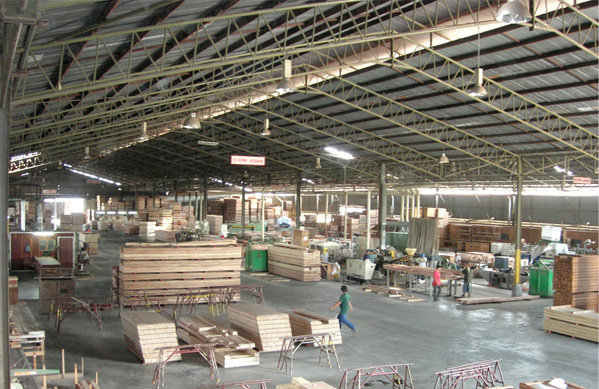
Sabah govt intervention
In 2021, the state government, through Yayasan Sabah, took over the abandoned land previously owned by SFI from its R&M. One of its actions was revoking SFI’s land concession, which covered acacia plantations. Since acacia trees start to rot after seven years, their decline inevitably leads to financial losses.
To restore the land’s productivity, Yayasan Sabah appointed a firm in 2022 to harvest timber and replant trees. Out of the 288,373ha of forests once belonging to SFI, 12,080ha of its commercial land, which had lain unattended were cleared of old and dying trees, and new ones were planted.
This created jobs for some 300 former SFI workers and helped revive Sipitang’s economy.
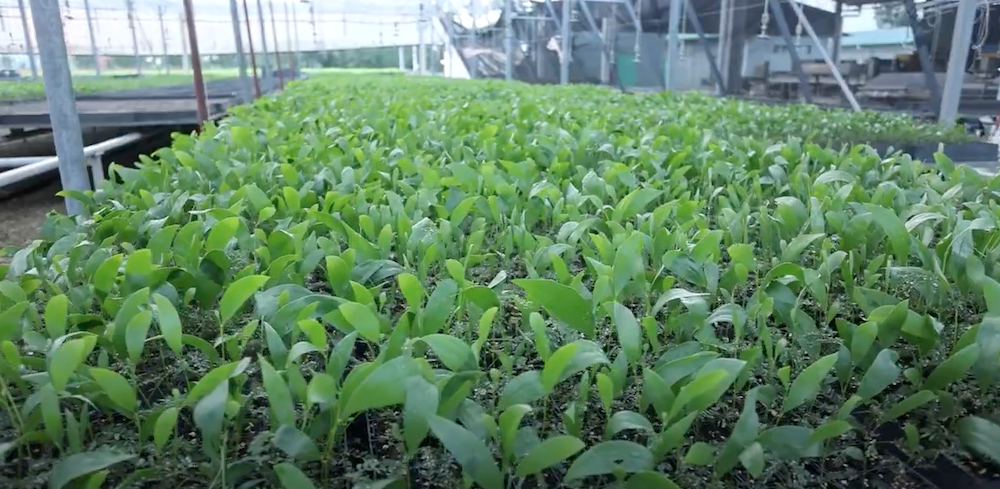
Unfortunately, these same workers lost their livelihoods again in December 2024 when ongoing legal disputes between Grant Thornton and the Sabah government, alleged to be perpetrated by parties with agendas of their own, halted all timber harvesting and tree replanting on SFI land. Their hopes for stable employment, once rekindled by the state government's efforts, were dashed once more.
Many of the 1,200 former SFI workers who began their careers at the company when they were young are now middle-aged. Those in their 40s and 50s face particular difficulty finding new jobs, making it hard to provide for their families, let alone afford their children’s education.
Unable to pay their utility bills, many have endured months without water and electricity. During this time the Sabah government extended aid in the form of food baskets to help ease their daily burden of putting food on the table.
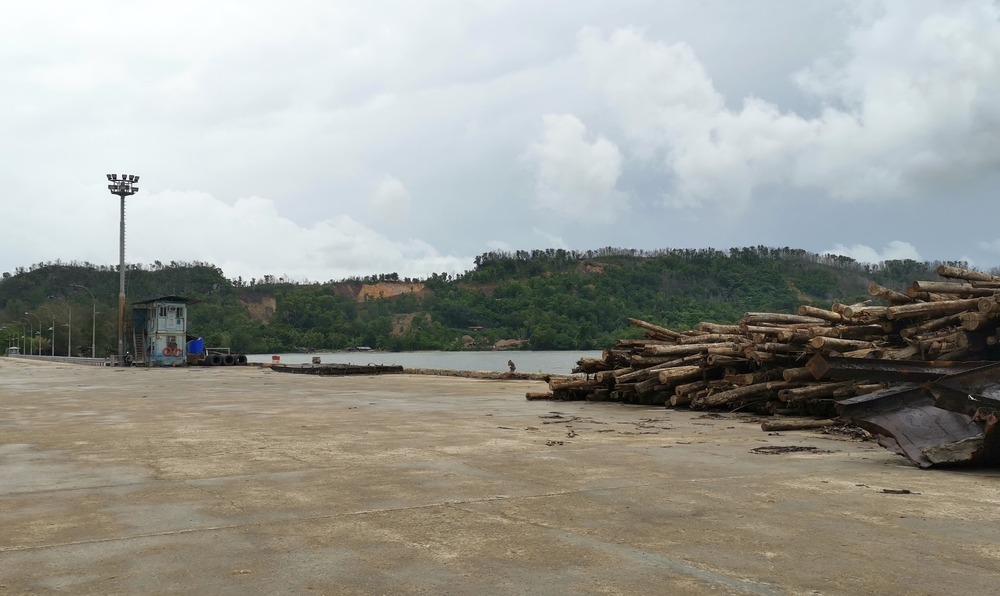
Struggling to survive, former SFI workers are urging state and federal leaders to look beyond the legal battles, which have become a platform for opposing factions to discredit the Sabah government’s efforts.
Four years after losing their jobs, they are still fighting for their unpaid wages and unremitted EPF contributions - funds that would allow them to finally rebuild their lives.
‘Please help us’
Kamal Mustapha, 56, ex-SFI mill steam and power department supervisor
“SFI wasn’t just any company - it was the lifeblood of Sipitang. Once the largest employer in the area and the only paper mill in Southeast, it had stood as a symbol of industrial success,” Kamal reflected. “And now, look at us - abandoned, ignored, and left without answers.”
He voiced the questions that had haunted him and his colleagues for years. “When will we get the five months’ worth of unpaid wages? When will we see the EPF contributions for the past two years?
I am pleading with the authorities - the Labour Department, the Insolvency Department, EPF - to intervene with the conspiring parties in the SFI suit to pay us money we have worked for. We have nowhere else to go. We have tried every possible channel, but it’s a dead end every time.”
The cycle of false hope had been relentless. “We signed seven rounds of these layoff agreements. Every six months, we were given hope, but nothing changed. In the meantime, we had to find ways to survive,” Kamal lamented.
As years passed, hope dimmed. Some workers had managed to find other jobs, but for many - especially those past their prime working age, like Kamal - survival had become an everyday battle.
Kamal tirelessly climbed the bureaucratic ladder, meeting with officials, filing complaints, and seeking answers. But at every turn, he was met with the same response: “Wait for the court case, wait for the sale to be finalised.”
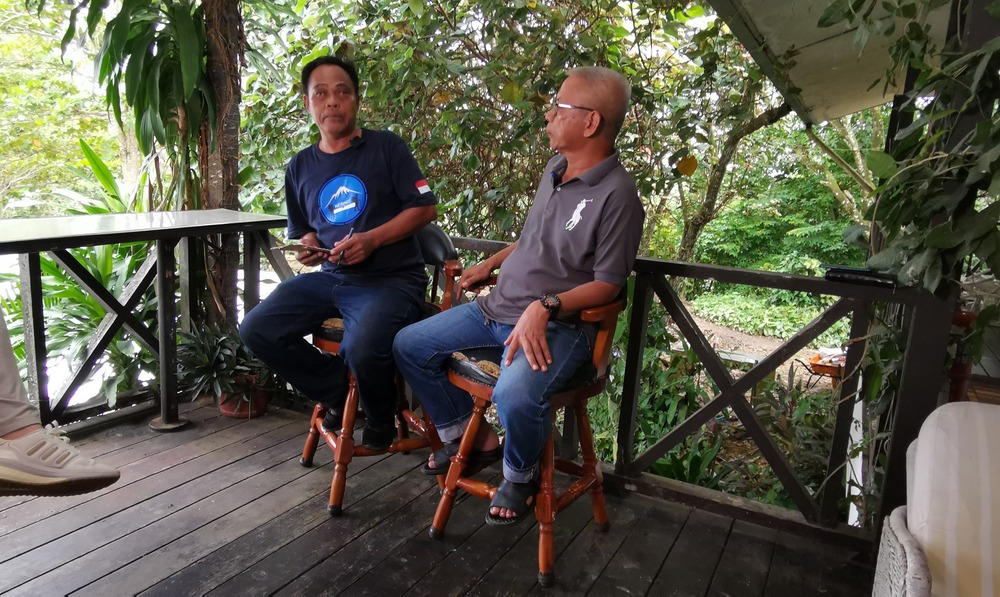
Janurin Sukiman, 58, ex-SFI security executive
When SFI’s operations were halted in 2021, Janurin and many others found themselves jobless, struggling to survive.
Despite months without pay, Janurin and his colleagues in the essential services team continued working in the company, trusting that their efforts would eventually be rewarded.
When Janurin turned 55 and tried to withdraw his savings to support his children in university, he discovered two years' worth of contributions were missing. The betrayal cut deep.
Then, in July 2024, hope was rekindled. The state government, through Yayasan Sabah, appointed a firm to revive SFI land. For Janurin, being re-employed felt like stepping into the sunlight after a long and brutal storm. But that relief was short-lived.
On December 4, only four months later, another blow struck - operations were halted once more due to a judicial review bid commenced by SFI’s R&M against the Sabah government’s planned mandatory acquisition of the company’s land.
More than 300 workers, including Janurin, were dismissed again. Finding another job was nearly impossible. Most companies did not want to consider applicants over age 50.
Now, many former workers live in desperation. Without electricity or running water, they collected rainwater just to bathe. Families with young children suffered the most, their futures growing more uncertain with each passing day.
“We gave our everything,” Janurin said, his voice heavy with frustration. “We worked without pay, we endured. And yet, we are the ones left with nothing.”
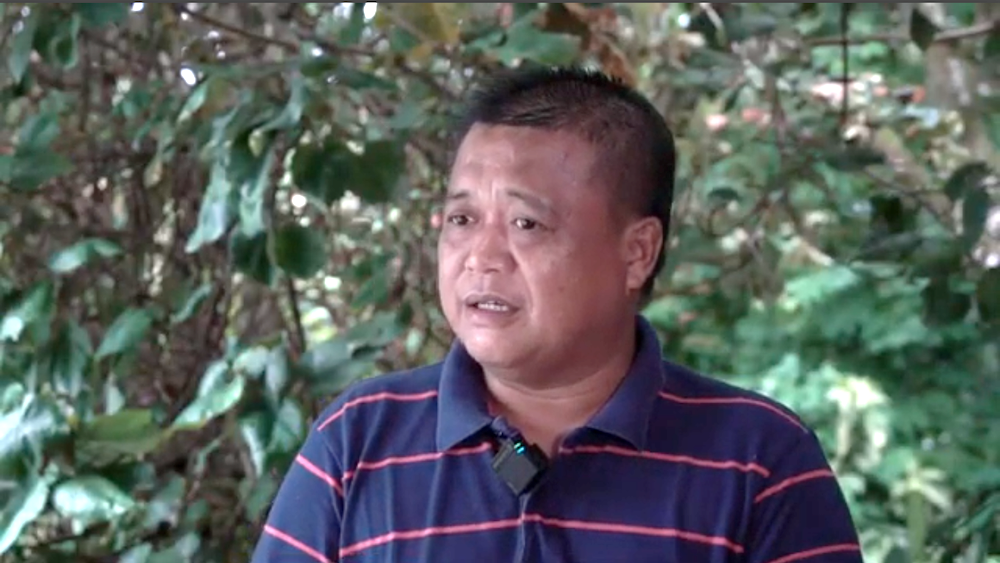
Malik Oyanam, 49, ex-SFI log yard supervisor
Malik had dedicated 25 years of his life to SFI, from 1997 to 2018, believing in the stability it once promised. But when SFI collapsed, he, like many others, was left without a job.
The state government, through Yayasan Sabah, later stepped in, assigning a portion of SFI’s land to a new enterprise, which offered Malik a second chance in 2022. For two years, he worked diligently, grateful to be employed again.
“I was happy,” Malik recalled. “I had a job again. I worked for the company from 2022 to 2024.”
But the relief was cut short. In December 2024, without warning, he was laid off again.
“This was my second time. Imagine that - laid off from SFI, then from the company appointed by Yayasan Sabah. Twice.” His voice carried the weight of disappointment and frustration.
The uncertainty of his future loomed over him. “I have a family. My child needs to go to school. I have bills to pay. Now, I have no income. How do I find work at my age? Employers hesitate to hire people over 50.”
His plea was simple yet urgent. “As a Malaysian citizen, as a Sabahan, I ask the nation’s leaders who hold power to pave the way for a resolution. We need to eat. We have no salaries. My friends are also struggling to find jobs. Recognise our skills, our experience.”
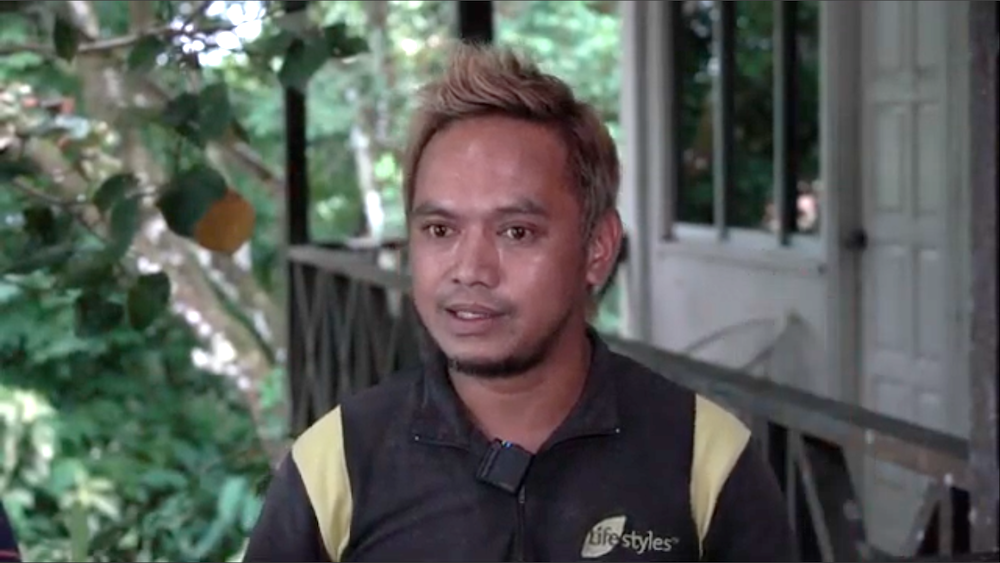
Paude Mandang, 42, ex-SFI plantation supervisor
Paude shared Malik’s sentiments. He had placed his hopes in the state government’s decision to empower Yayasan Sabah to intervene in the SFI dilemma, believing it would finally bring stability.
“Our first hope was simply our right as SFI workers,” he explained. “After the machines and factories were sold, we were the last remaining assets of SFI. All we wanted was the five months’ worth of unpaid wages owed to us.”
However, legal disputes disrupted the company’s operations at the end of 2024, and once again, workers were dismissed. For Paude and many others, it was the second time they had lost their jobs, plunging them back into uncertainty.
“Some of our friends passed away while waiting for news,” he said solemnly. The weight of uncertainty was unbearable. The jobs that had once defined their lives were now gone, and the future remained bleak.
Not giving up
Despite the Sabah government’s efforts through Yayasan Sabah to give the workers stable jobs, recurring setbacks allegedly brought about by the meddling manoeuvres of opposing factions and political parties leading to long-drawn legal entanglements have kept many in a cycle of hope and despair.
They are struggling to survive one more day, yet they hold on. Because this land, this company, was more than just a job. It was their lives, their identity, their future.
All they ask now is for the powers that be to pay attention to their plight and act before it is too late. The workers are not just faceless individuals trapped in courtroom battles. They are fathers and mothers, workers who gave everything they had. They are Malaysians who still believe that justice will come.
This interview article is produced by FG Media.
The views expressed here are those of the author/contributor and do not necessarily represent the views of Malaysiakini.

